International stand construction: Competent local colleague
Language, culture and law are some of the challenges of international fair projects. German stand builders master them frequently with local partners.
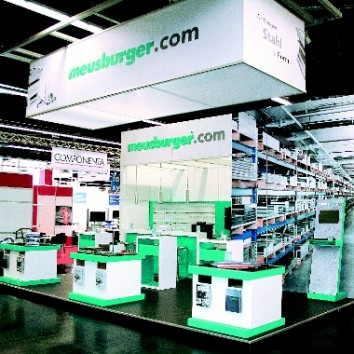
When it comes to trade fairs, the New World is a different world: The differences pertain not only to quality standards and regulations. But, above all, standard construction parts, furniture or multi-storey stands often cost a lost more in the US, for example, than in Europe. “If there is enough time, it can be cheaper in some cases to ship an entire stand from Europe to the USA,” says Rainer Müller, Managing Director of the exhibition service provider Bluepool from Leinfelden-Echterdingen. To keep control of costs and planning, the chemical company LyondellBasell always coordinates its global projects directly with Bluepool. One of the advantages for the exhibitor is that Bluepool partners are in charge of the design and supervise its production in many locations. “As a member of the International Federation of Exhibition and Event Services (IFES) we are growing our existing network of competent partners in many different countries,” points out Rainer Müller. In East Asia customers are even supported by an independent subsidiary, Bluepool Shanghai.
However, in some places the services of exhibition specialists from Germany is indispensable. The stands for LyondellBasell in Delhi were produced conventionally under Bluepool’s supervision in India according to international design standards. Local partners were in charge of set-up at the venues. However, they were briefed by the Bluepool team in Leinfelden-Echterdingen, which also monitored set-up activities on-site. For customers who exhibit in Europe such as the mould and machine engineering company Meusburger, Bluepool keeps modular stand elements available at its customer warehouse in Reutlingen. They are transported by van to the destination and set up there by the Bluepool team. Bluepool even managed the technical development of an individual stand construction system according to precise specifications for the drive and control company Bosch Rexroth. In countries such as Germany, Poland, the USA, South Korea and China there is a material pool which local partners have access to. However, Bluepool is always in charge of all planning and realisation measures in virtually all countries world-wide (www.bluepool.de).
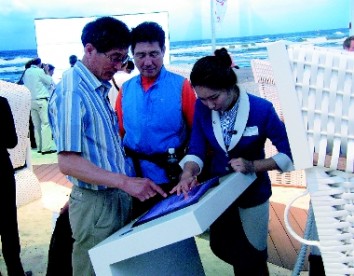
Atelier Türke is a stand builder from Balingen in the south-west German region of Swabia. And it is definitely not only because of its name that the company has been focusing on Turkey as a growth market: Contacts with the Bosporus were initiated by the wife of Managing Director Frank Türke. Having lived there for many years, she was very much familiar with the language and culture. Synergies resulted from the fact that the advertising agency of the Türke Group has contacts with Hannover Messe Worldwide and Deutsche Messe Istanbul. This made it possible to stage campaigns from Balingen for German companies at Istanbul fairs. “We soon realised what great economic potential Turkey has and what a gigantic development it will see in the next few years,” explains Frank Türke. He relies on the proverbial meticulousness the people of his region are well-known for: “In our activities in Turkey we also wanted to offer what makes up our core business: high-quality exhibition stands with Swabian precision.”
The first customer to accept the offer was the exhibitor Bucher Hydraulics from Klettgau, who commissioned Atelier Türke to build stands for trade fairs both in Germany and in Turkey. Further exhibitors followed suit and often entrusted the German specialist with the entire organisation including travel bookings for trade fair participation in Turkey. A Turkey team consisting of the management, communication professionals and project managers accompany the customer. And to ensure Swabian meticulousness in stand construction, exhibition stands were initially pre-fabricated entirely in Balingen and then shipped to Turkey. “But now Turkish architects help us with execution. In addition, we cooperate with local stand builders and PR specialists,” says the managing director, who cannot conceal a chuckle despite these achievements. It happens when Turkish customs or check-in staff read the name “Frank Türke” and “Frankfurt” as the airport of departure (www.atelier-tuerke.de).
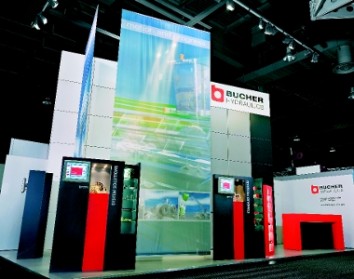
The award-winning German Pavilion at Expo 2012 in South Korea is further proof that German exhibition specialists are doing very well also on an international level. Short but exciting weeks preceded the “Gold Award“ for the best realisation of the Expo theme “The living ocean and the coast”. It took stand builder Holtmann from Langenhagen near Hannover only three months to build “Seavolution”, a fascinating coast and underwater experience, for the German Pavilion in Yeosu. The concept was provided by the live communication agency facts and fiction and GTP Architekten. From May to August three theme areas on two levels – coasts, biotope and treasure chamber – welcomed 430,000 visitors. Virtual animation films informed about tsunami early warning systems. Visitors explored the oceans with video installations and augmented reality and discovered the wealth of maritime resources. The highlight of the Pavilion, the “main show”, took visitors on a virtual deep sea exploration between soundproof walls.
The deep sea adventure at the German Pavilion covered an area of 1,700 square metres. Over one hundred staff members used around 53 tons of steel for their construction and mile-long cables. Painters, partly hanging upside down, added finishing touches of gold to the treasure chamber – while individual stairs were assembled by the Korean partner company on site to form a climbable staircase. For the exhibition specialists from Germany this was a completely new experience. “Work processes differed hugely from what we are used to,” recalls Claus Holtmann, Managing Director of the company. “An Expo pavilion is simply like a little microcosm of its own: People with different cultural backgrounds and work attitudes create a new little world together.” Germany’s participation in Expo was organised by Hamburg Messe und Congress on behalf of the German economics ministry (www.holtmann.de).
Author: Jens Kügler
This article was published in TFI issue 2/2013
Share in Facebook, Twitter or Google+:
TFI - Trade Fairs International - The International Trade Fair Magazine.
© 2006 - 2024 by TFI-Verlagsgesellschaft mbH. All rights reserved. TFI-Verlagsgesellschaft mbH shall accept no responsibility for the contents of external links and other contents.
TFI-Know-how
-
What to do when things go wrong at virtual or in-person events?
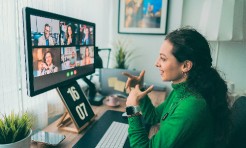
In the event world, it’s simply part of life if things don’t work out as planned.
-
How can networking be made to work at online events?

Networking typically happens at real, in-person events. But it’s also possible to do it online; it just works a little differently. There are various options available to organisers.
-
How can exhibitors stand out at trade fairs?
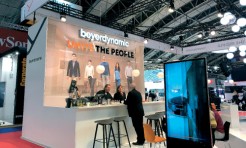
New products and a well-conceived stand design are not the only drivers for a successful presence. Many other factors are also important, but trade fair planners often lose sight of them.
-
How can industry decision-makers be reached online?
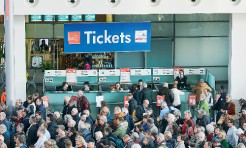
Trade fairs and trade fair companies need to constantly further develop, become more agile and flexible and offer services all year round. New, digital offerings are very important here. With its TrustedTargeting technology, Messe München offers its customers access to leading business-to-business decision-makers on the Internet.


